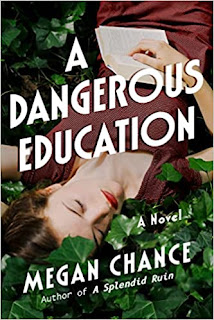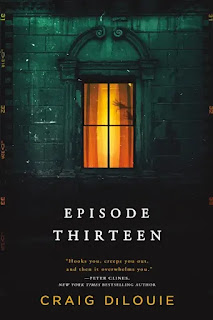 series for 2017. Town & Country magazine recently selected A Murder in Time as one of 35 best time travel books.
series for 2017. Town & Country magazine recently selected A Murder in Time as one of 35 best time travel books.
A Murder in Time has been optioned for television/movie development.
A Twist in Time and Caught in Time — the second and third installments of the In Time series — were released in April 2017 and July 2018, respectively. Both novels were selected by The National Librarian Association for their Must-Read lists. Betrayal in Time earned a starred review from Publishers Weekly.
McElwain lives in North Dakota.
The new novel in the In Time series is Ripples in Time.
Recently I asked McElwain about what she was reading. Her reply:
I recently had the pleasure of reading The Hunting Party by Lucy Foley. The story is a beautifully written whodunit told from multiple viewpoints, and alternatesVisit Julie McElwain's website.between three days in the past and the present (when the body is discovered). Foley gathers a group of friends (most having met at university) in a remote lodge in the Highlands, and allows the characters to propel the story forward by slowly revealing their petty disagreements, jealousies, and hatreds, which have been festering for years. For a majority of the book, you are not only trying to guess who the murderer is, but also who was murdered. As someone who has always loved Agatha Christie, I am putting Foley on my go-to list when I want to cuddle up with a good book in front of the fireplace and a cup of strong English tea.
The Page 69 Test: Caught in Time.
My Book, The Movie: Betrayal in Time.
The Page 69 Test: Betrayal in Time.
Q&A with Julie McElwain.
The Page 69 Test: Shadows in Time.
My Book, The Movie: Shadows in Time.
--Marshal Zeringue


























